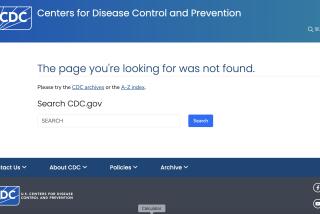New York attorney general tells hospitals to continue transgender care after Trump’s executive order

- Share via
NEW YORK — New York Atty. Gen. Letitia James on Monday told hospitals that they would be violating state law if they stopped offering gender-affirming care for people under age 19 in response to an executive order from President Trump aimed at curtailing federal funding for such treatments.
In a letter, James, a Democrat, told healthcare facilities that refusing to provide the treatments would violate New York’s anti-discrimination laws.
“Regardless of the availability of federal funding, we write to further remind you of your obligations to comply with New York State laws,” her letter reads.
Trump, a Republican, last week signed an executive order that directed agencies to take steps to make sure that hospitals receiving federal research and education grants “end the chemical and surgical mutilation of children.” The language in the order — using words such as “maiming,” “sterilizing” and “mutilation” — contradicts what is typical for gender-affirming care in the United States.
The executive order conflicts with laws in California and other blue states that forbid discrimination based on gender identity. The courts are expected to take up the issue.
The letter from James came as some hospitals in Colorado, Virginia and Washington, D.C., said they were pausing gender-affirming treatments for young people while administrators evaluate the order. The White House on Monday released a statement that said the executive order was “already having its intended effect.”
A spokesperson for the Greater New York Hospital Assn. said the group was in close contact with member hospitals about the gender-affirming care executive order.
“We are collaboratively working through every aspect of the EO to determine its legal and clinical implications. That work is ongoing,” Brian Conway said in an email.
Gender-affirming medical care for transgender youth is not common, but such treatments have been the subject of fierce political debate.
Fewer than 1 in 1,000 adolescents in the U.S. with commercial insurance received puberty blockers or hormones during a recent five-year period, according to a new study.
More to Read
Sign up for Essential California
The most important California stories and recommendations in your inbox every morning.
You may occasionally receive promotional content from the Los Angeles Times.











